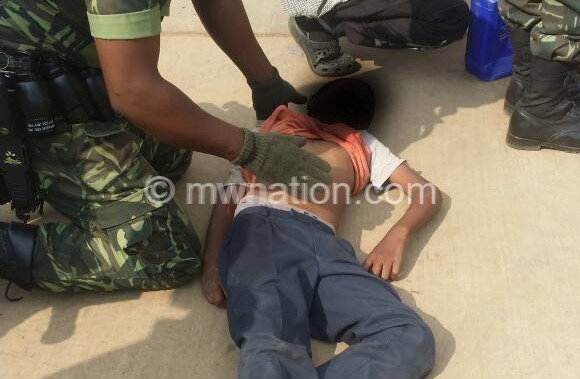Stadium tragedy wake-up call—MHEN
Government needs to wake up to the need to provide special emergency funding that could enable the Health Ministry to have adequate ambulances and first-aid health facilities at public events.
Malawi Health and Equity Network (MHEN) executive director George Jobe said this during an interview with Nation on Sunday in Lilongwe yesterday.
He was reflecting on the stampede that killed eight people and injured 62 others at Bingu National Stadium in Lilongwe on Thursday morning.
The stampede occurred when hundreds of people were jostling to enter the stadium to watch a football match between Nyasa Big Bullets and Silver Strikers.
The game, won 2-0 by Bullets, was part of the 53rd Independence Anniversary Celebrations.
“This tragedy should be a wakeup call for the government to give the Ministry of Health its own ring-fenced emergency funding in order to respond more effectively to such disasters,” Jobe stated.
He said the fact that the disaster casualties were being ferried to the hospital in not only the few KCH ambulances but also by police vans and vehicles of well-wishers reveals the fact that the hospital’s budget is limited in terms of emergency vehicles.
Jobe said government should, from now onwards, involve hospital authorities on the onset in the planning for major public events, not only at stadiums but also at large closed-door venues like the Bingu International Convention Centre in Lilongwe.
“Such planning should ensure that several stand-by ambulances and tents for first aid treatment are nearby. If the hospital officials are involved right at the beginning of the planning, many lives can be saved in that way,” he said.
However, Jobe was full of praise for KCH personnel who clearly worked hard to save lives of the stampede victims who were rushed to the hospital.
“We commend the medical personnel for an efficient response to the disaster. I know for a fact that doctors and other hospital staff who were off-duty scrambled to the hospital to help in treating casualties,” he stressed.
In his comments on the matter, Minister of Health Peter Kumpalume also saluted the KCH personnel for proving that the emergency preparedness courses and drills they have from time to time work.
“We always plan for a worstcase scenario and, largely, our planned response worked well [on Thursday], despite us being over-stretched.
In an emergency, everybody is called to the hospital. It’s part of our training and code of conduct. That’s why people spend days without a break in times such as these.
“KCH can handle emergencies like they did. We plan and train for any kind of emergency. As with all emergencies, you really can’t tell where we would be found wanting but what is important is that we learn with each experience and close any inadequacy,” the minister stated.





